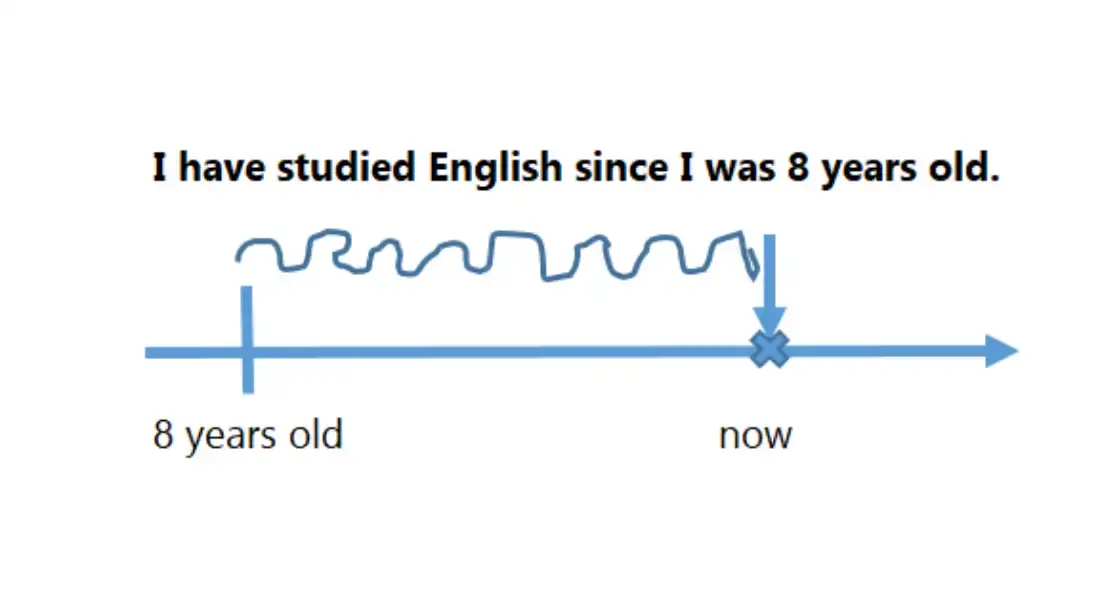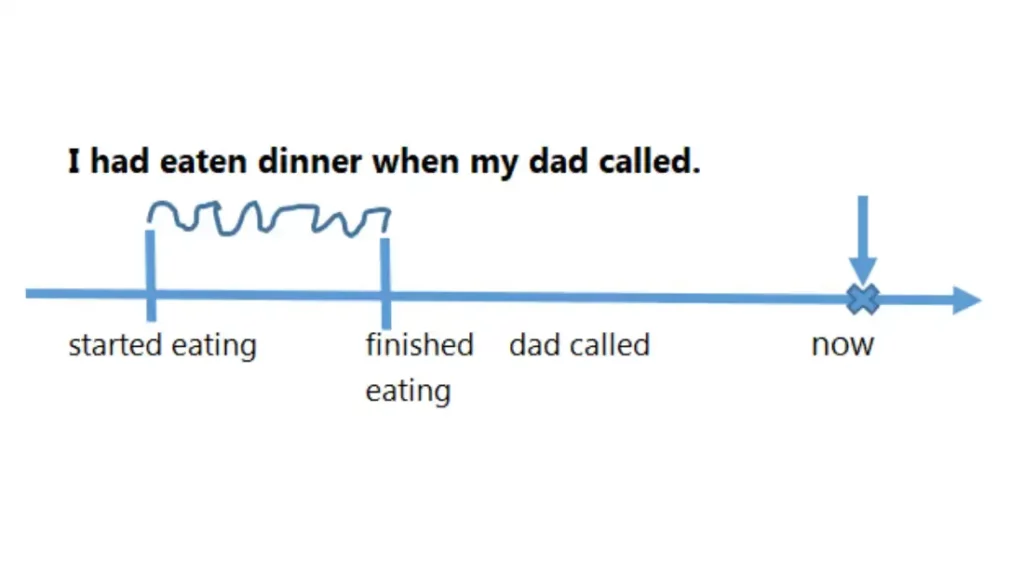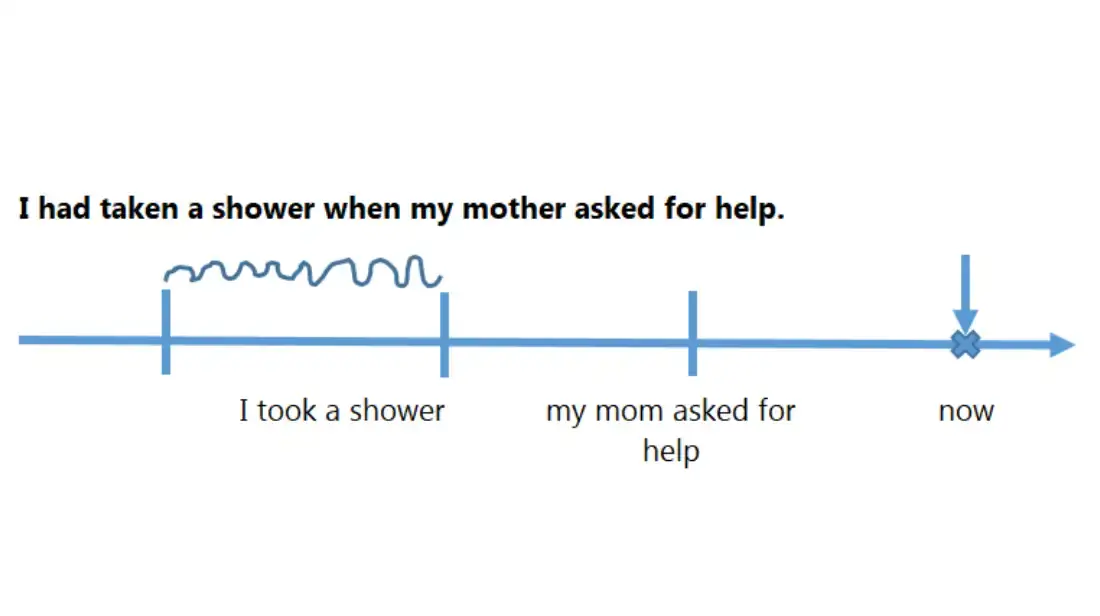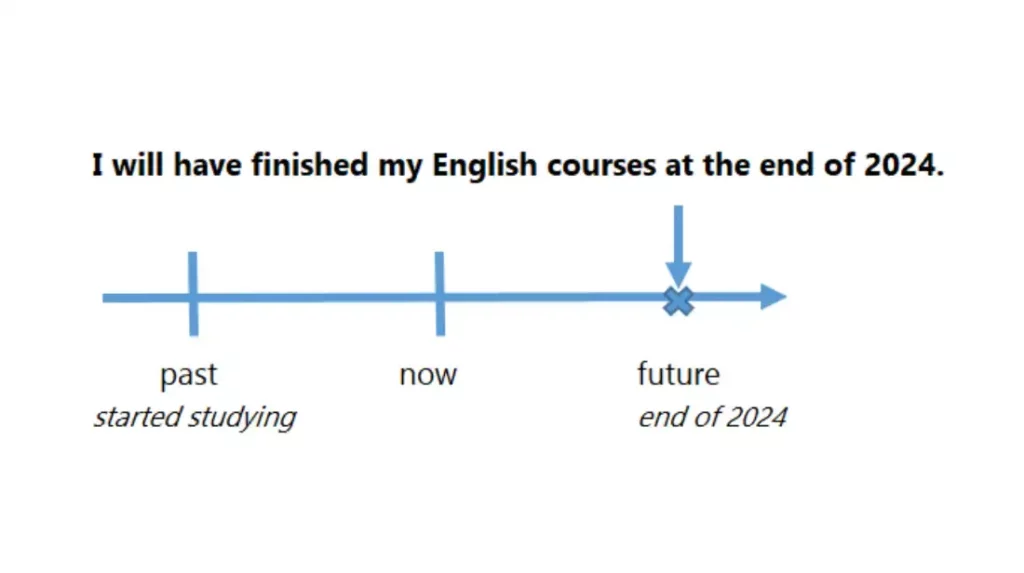
3 Perfect Tenses in English with Meanings, Uses, and Examples: Start Learning Them Now!
English verb tenses are important aspects of English grammar. ESL learners often tend to confuse the verb tenses because of their distinct structure and meaning in sentences.
One confusing but unknowingly used verb tense are the perfect tense in English. Many language speakers unconsciously use these tenses but are not sure if the tense used is appropriate or not. In English, perfect tenses have a specific structure that makes meaning conveyed clearer when analyzed.
Unlike simple tenses, the perfect tenses in English talk about actions that are already done or finished by the time we talk about them. They show a relation between the actions at the present time and the actions in the past.
The perfect tenses in English are Present Perfect, Past Perfect, and Future Perfect. They are formed with the structure “has/have/had/will have + Past participle.” We can say that the tense is either in the present, past, or future perfect depending on the time of completion.
The perfect tenses in English are always accompanied by the past participle of a verb. The past participle is the form of a verb that usually ends in “–d, -ed” for regular verbs and “-en,” for irregular verbs. They play a great role in forming the perfect tenses in English as they are one of the markers to easily spot the tense of the sentence.
Questions to draw an understanding of perfect tenses
To better understand perfect tenses in English, we have here a list of sample questions.
- What have you done? -> I’ve broken a wine glass.
- What have you done (+time marker)? -> I have delivered some pizza since 10 AM.
- What has happened (in the story)? -> The dog has bitten the hand of the enemy.
- How do you know …? -> I’ve heard a loud scream from a distance.
- Why do you think (you are qualified)? -> I have been a great contributor to sales.
When learning the perfect tenses in English, we must pay attention to the construction of the sentence and the intended meaning that it conveys.

The Perfect Tenses in English with Meanings, Uses, and Examples
In this part of the article, we will discuss the meaning of each perfect tense in English with its uses and examples for better understanding.
Present Perfect Tense
The present perfect tense expresses the idea of actions or situations in the past that are connected to the present situation. This shows the relevance of the past action to now.
Structure: has /have + past participle
Here is an example timeline for a better understanding of the present perfect tense.
I have studied English since I was 8 years old.
Uses of Present Perfect Tenses in English
- For repeated or habitual actions with a time marker showing references to the past.
Example: My younger sister has always passed her exams. (Assume my sister is still in the 5th grade at this point ).
- For single, continuous actions where both the doer of the action and the results remain.
Example: I have been with my best friend since we were 10 years old. (My best friend and I are still friends).
- For an action that took place in the past but the results are still visible.
Example: Mr. Jones has broken the window. (The window is still broken at this time we are speaking).
- For actions that took place in unidentified periods of time and are not yet over.
Example: My friend has taken the book to the library this morning. (Imagine that by this time it is still morning).
- For actions that took place in the past and still relate to the present situation.
Example: I have studied Spanish. (Until now I know a lot about Spanish and I remember them).
Another use of present perfect tenses in English is with time markers “just, yet, already, and still” which usually indicate the attitude of the speaker.
- Just – a marker used to indicate an immediate past time: either ‘now’ or very close to now.
Example: She has just eaten her breakfast. (Assume that at the time of speaking, it was just a few minutes after the doer’s breakfast).
- Yet/already – this suggests that the speaker believes that the result of the action should or could be present now.
Example: Have you done your homework yet? (You worked on your homework; is it done? How long will it take you to finish?)
- Still – usually taught after already and yet.
Example: My cousin still hasn’t seen her father. (My cousin and her father probably have not met or they have separated ways at some place).

Past Perfect Tense
The past perfect tenses in English express the sequence of actions or events and their relationship. There is an emphasized order of time in an action.
Structure: had + past participle
Here is an example timeline for your reference:
I had eaten dinner when my dad called.
Uses of Past Perfect Tenses in English
- For actions in the past that occurred before a specific time, and the result of that action was still in force at that time.
Example: Lunch had been ready when she arrived. (Assume that lunch had already been cooked before she arrived).
- For expressing relationship and sequence of past actions using the past perfect clause as a marker.
Example: After he had done the report, he took his medicine. (In this case, the doer of the action had finished the report and after that, he took his medicine).
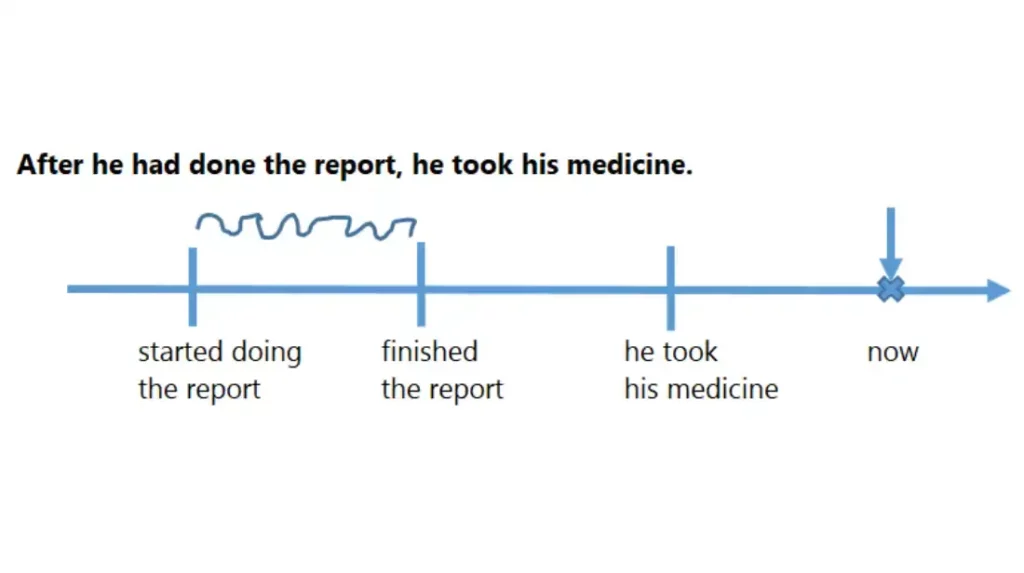
- “When” is used as a time marker.
Example: I had taken a shower when my mother asked for help. (My mother did not call for help while I was showering; rather, after I finished taking a shower).
- To express causal relationships between past actions.
Example: He had to step in because the students had been so noisy. (The students were noisy before he stepped in; assume they kept quiet when he did it).

Future Perfect Tense
The future perfect tense expresses the idea of actions that are expected to happen or be completed in the future. The use of “will” and “shall” are important in this tense.
Structure: will / shall + have + past participle
Here’s an example timeline for your reference:
I will have finished my English courses at the end of 2024.
Uses of Future Perfect Tenses in English
- Expresses a specific point in the future where an action is expected to happen using the word “by.”
Example: My mom will have changed my bedding by 4 o’clock this afternoon. (Assume that the time now is just a few minutes or an hour before 4:00 PM. My mom will be finished changing my bedding by then).
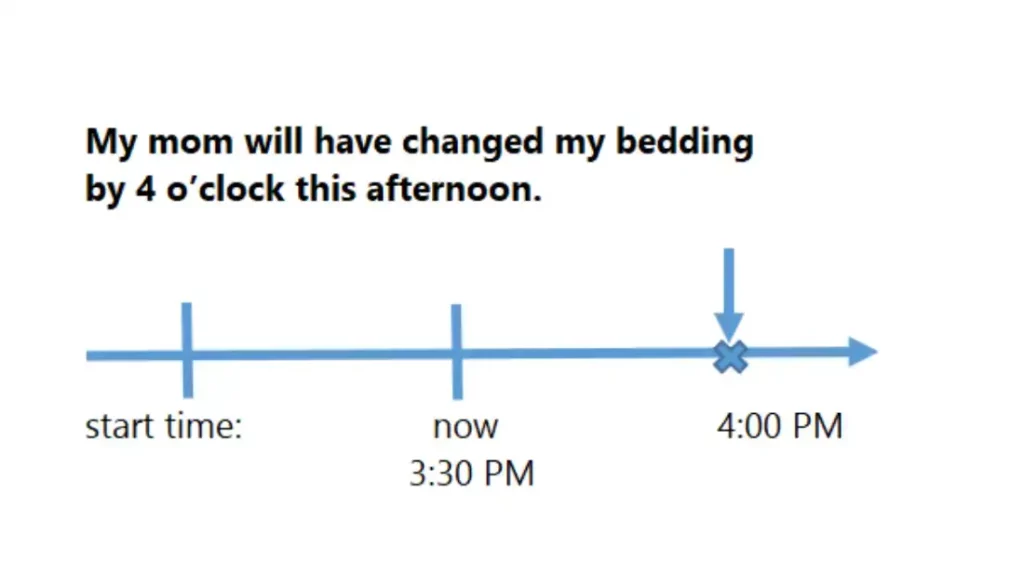
- Used for a period of future time that is implied or stated (often a lifetime).
Example: Mike studies hard so he will have received a good education. (Mike is still studying and is expected to have a good education).
- Used as a logical deduction.
Example: I’m waiting for my friend; she will have left by now. (I am predicting a probable action).


The perfect tenses in English are one of the most challenging and confusing tenses to use. This is one reason why some students avoid this tense, especially the future perfect tense. The perfect tenses in English are often introduced to advanced learners.
Beginner Level students tend to be unfamiliar with the perfect tenses in English, but Intermediate and Advanced Level students are more likely to use these tenses in their conversations or writing tasks.
The perfect tenses in English are a bit difficult to understand, but constant learning and practice can help you be more aware of their uses and structure.
Practice Time!
Identify which type of perfect tense is asked in the following sentences.
- The manager shall have announced the salary increase by 3:00 PM today.
- Mr. Bakers had already checked in at the airport when he realized he forgot his documents.
- I had reported the incident before the police arrived.
- After he had cooked dinner, my dad went to the poolside.
- Has Miss Brown finished doing her homework?
- I will have taken IELTS by this time in October.
- The president will have finished his term in 2025.
- The ship had arrived when security searched our belongings.
- Her father has been ill for three years.
- I have been in this company since 2016.
Your answers can be found here.

